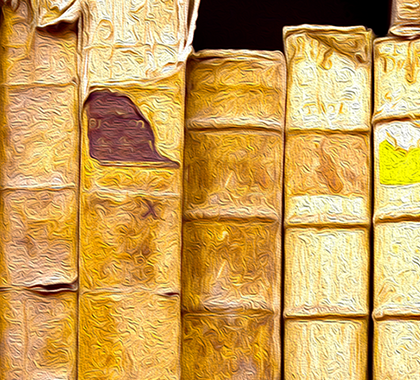Studying History
Parshat Ha’azinu is God’s review of our nation’s history. It describes our past, our present and future. The Ramban himself praises the parsha with these words:
Now, if this Song had been written by one of the astrologers it would have earned belief therein because all its words have been fulfilled by now. Certainly we shall continue to believe and look forward with all our heart for the word of G-d by the mouth of His prophet…
This most historical parsha opens with a command for us to study our history (Devarim 32:7).
Remember the days of old,
Consider the years of ages past;
Ask your parent, who will inform you,
Your elders, who will tell you How
Why Study History?
This verse in our parsha directs us to find out about our past from our parents and elders. But Rashi already says that not all the parents and not all the elders are reliable:
On “Ask your parents” Rashi says: “these are the prophets who are termed fathers, as it is stated in the history of Elijah that Elisha exclaimed when Elijah departed, (2 Kings 2:12): “My father, my father, the chariot of Israel!” (cf. Sifrei Devarim 310:3).
On “Your elders” Rashi says: “These are the sages.”
God is not telling us to study the past in order to pass a Divine history exam. We are not expected to memorize facts. Our parents and elders can be relied upon to provide us with accurate dates. But we are expected to study history in order to see Divine presence in human affairs. That sort of comprehension is only to be found among the exceptional.
On History and Historiography
One of the great Torah Scholars of the previous generation was Rav Avraham Yeshayah Karelitz zt”l, who is better known by the title of his books, Chazon Ish. Besides writing this series of books on Halacha, he wrote a short essay titled Emunah u’Bitachon.
In it he discusses the study of history saying the following (chapter 1, paragraph 8):
 Chronicles and histories of the world do much to instruct the wise man on his path, and on the events of the past he establishes his wisdom. However, given that people love to innovate and to speak before the public many lies have accumulated in the history books, because people do not naturally loathe falsehoods , and many love falsehoods, are entertained by them and are friendly with them. Therefore, the wise man must sift through the tales of the writers. In this discipline there is ample room for the imagination because it is the nature of the imagination to reach conclusions rapidly before the intellect has had the time to weigh all of the factors. Meanwhile the imagination has reached its verdict; what is true and what is false.
Chronicles and histories of the world do much to instruct the wise man on his path, and on the events of the past he establishes his wisdom. However, given that people love to innovate and to speak before the public many lies have accumulated in the history books, because people do not naturally loathe falsehoods , and many love falsehoods, are entertained by them and are friendly with them. Therefore, the wise man must sift through the tales of the writers. In this discipline there is ample room for the imagination because it is the nature of the imagination to reach conclusions rapidly before the intellect has had the time to weigh all of the factors. Meanwhile the imagination has reached its verdict; what is true and what is false.
In this brief passage the Chazon Ish explains the challenge involved in studying history. First, there are the data points. There are names and dates which are facts but historians take the data and construct a story.
And when we wish to learn history we are interested not only in what happened but why it happened and we need to be very cautious in choosing which authorities we turn to to answer the latter.
History and Historiography: Another Approach
Rav Moshe Lichtenstein of Yeshivat Har Etzion gave a talk on the subject of history and chose the Holocaust as the focus of his discussion.
The Holocaust was a horror unlike any other and Rav Lichtenstein said that his inclination was to see it as the fulfillment of another verse in our parsha:
I might have reduced them to naught,
Made their memory cease among humankind
But Rav Lichtenstein went on to say that the founder of the yeshiva, Rav Amital zt”l, who survived the Holocaust, said that it is horribly presumptuous for anyone to say that they understand or know the cause of the Holocaust.
On the other hand, Rav Yitzchak Hutner zt”l, one of the great scholars of the 20th century saw the Holocaust as part of the continuum of Jewish history. Rav Lichtenstein brought these two opinions to demonstrate the difficulty in trying to find lessons in history. He concluded the talk by saying that despite the difficulty in understanding history the verse in our parsha remains as it is, a commandment to seek the lessons that can be found in history.

